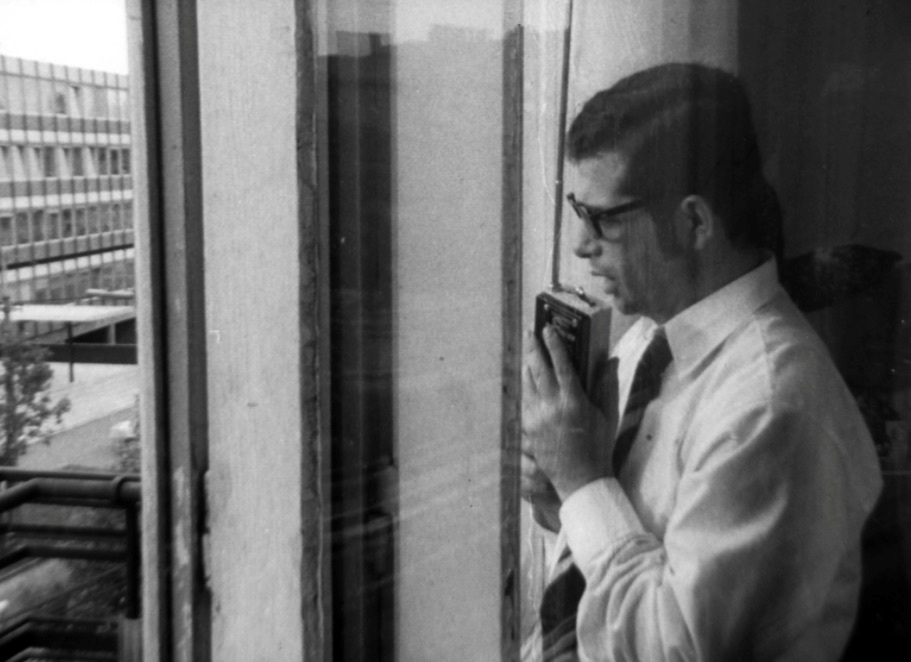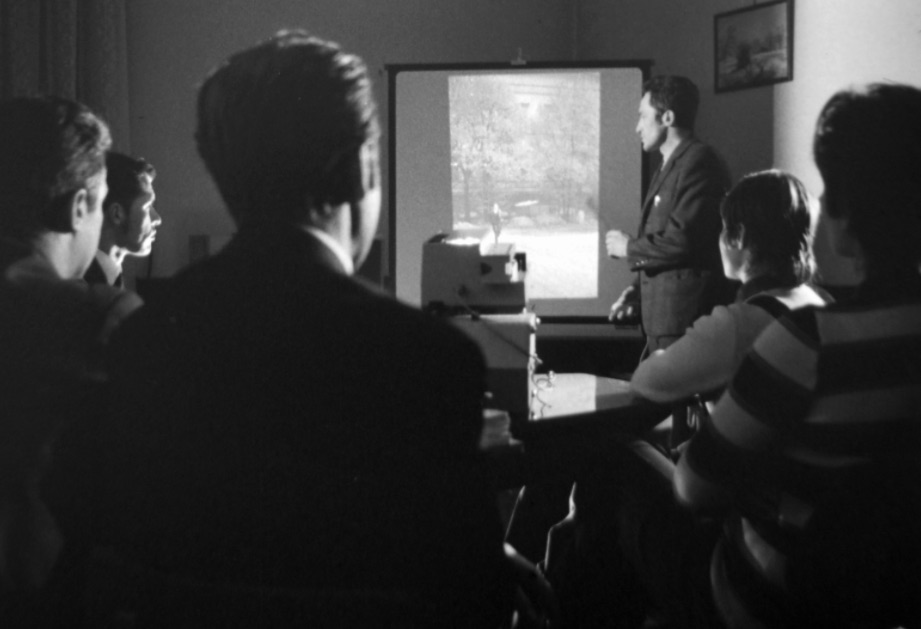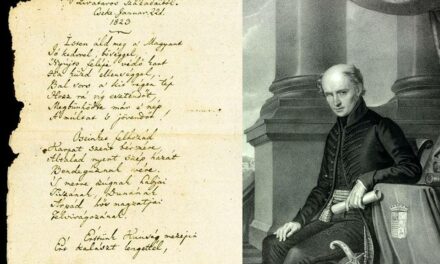The historian Zsuzsanna Borvendég's series was originally published on the PestiSrácok website, but there are certainly those who missed it. But those who haven't read all the parts should also read it again. Knowing the whole picture, can we understand how we got here?
János Sebestyén , deputy head of the National Technical Development Committee, was one of the central figures of the foreign interest group; his name has already been met several times in this series. His personality is interesting not only because his activities and his network of connections give insight into the operation of the mafia-like network, but also because he had many enemies in the party and state leadership of the time.
Of course, it was primarily those who were left out of the lucrative corruption deals who snubbed it, but of course we should not discount the possibility that comrades who took Marxism's critique of capital seriously and fought against illegal deals with "decadent capitalists" could have held some positions in the party-state bureaucracy. against.
Be that as it may, thanks to this hostile environment, state security repeatedly attempted to make the powerful engineer a suspect of common law crimes. They were not successful, but the attempts resulted in data collection, thanks to which we can now learn about the circumstances of many cases in the archives that would otherwise have been forever forgotten.
BM became jealous of MNVK-2. to your "business" success?
Of course, there was another motivation behind the compulsive attempt by state security: professional rivalry. By the 1960s, military intelligence had created the resources with which it could supplement its budget, and the state security of internal affairs watched all this jealously.
Did they want to learn the technique, or did they want to deprive the affiliate of its income? Both are possible, but one thing is certain: they wanted to pull the wet sheet over them. Although Sebestyén was untouchable, a secret investigation was started against many of his men, which also involved the mapping of the military intelligence network.
While they achieved apparent success, they never got to the real culprits: several investigations turned into court proceedings, and a verdict was reached, but the trouble was always carried away by a pawn, the network and the system remained intact.

BM investigation (illustration: Fortepan)
Devai became the expendable chess piece
One such investigation was conducted against the managers of Metalimpex, István Dévai and Miklós Gergely . Dévai was deputy general manager, Gergely was his boss. Dévai came into contact with Sebestyén while still at the trade office in Frankfurt, and the military secret service won him over even before he was posted. He was involved in quite dark deals, MNVK-2. performed currency extraction on his behalf for years. Of course, he was also able to make a good living with all this, since at the time the investigation was initiated (1974) he had just built a luxury property for himself in the hills of Buda. I'm not selling a sack cat: in the end, Dévai became the pawn, MNVK-2. he saved everyone else involved from the clutches of justice. Gergely also escaped the proceedings, but the case had consequences even in the 2000s.
Jankovics Marcell's book was crushed
I myself was surprised when I received a letter four years ago after an article I published at the time. It read: "Dear Wine guest Zsuzsanna! [...] you can catch a bird with me after reading his writing.
One of the protagonists of the article, Miklós Gergely, was the husband of the former director of Pannónia Filmstúdió. In my memoirs (Lékiratok, Helikon) published in 2007, I dedicated a few sentences to the case in question - without mentioning the names of either GM or Metalimpex - for which the widow and her son sued in 2008. I could not prove the "statement of fact", since in 1974 it was only possible to learn about such cases through word of mouth. I lost the case.
The court awarded compensation in favor of the plaintiff in addition to the legal costs. He crushed my book - in 2008! –, also the library copies. Good memories in the story: two rural libraries did not meet the demand, and Helikon republished my book without the few lines in question. Thanks to this, I am now fully satisfied. Sincerely, Marcell Jankovics".
Fictitious studies for fictitious companies
I can't add anything to the letter, unfortunately I don't know the censored sentences since then, but I have read the investigation materials created in connection with the case. With the use of Metalimpex, it was possible to provide extra resources for the military intelligence with a number of methods, for which there was no prosecution, since in all cases the MNVK-2 was cited as a service interest. officers.
And how was a foreign trade company able to make illegal payments to military intelligence? They used many tricks, for example, they liked to write fictitious studies on behalf of fictitious companies for many hundreds of thousands of forints - of course, calculated in contemporary values.
And the BM launched an investigation
"The Universal Market Research Office is one of the domestic operative cover bodies of our group headquarters, through which we process the domestic and foreign cash flows for which it is necessary to cover up the HM background [Ministry of National Defense] for operational reasons," reads MNVK-2 . of his group leader, Sándor Sárközi , with which he wanted to curb the curiosity of the interior, which was trying to find out the fate of the millions paid for the fictitious studies that came to light.
The existence of Universal was brought to the attention of the counter-intelligence department of the internal affairs by an investigation launched due to suspicion of embezzlement. On April 22, 1974, Mihály Viszkei , head of the Department of Planning and Economics of the Metropolitan Council, and István Tóth , director of the Metropolitan Council's Information Center, were placed under pretrial detention. The charge against them was primarily a violation of state secrets and fraud committed to the detriment of social property, in which politicians in high positions also helped them.
According to the BM, István Tóth committed embezzlement from 1969 – at that time he was still the head of the Economic Information Department of the Technical Information Institute of the Ministry of Smelting and Machinery [KGM] – on the basis of fictitious contracts concluded with his Viszkes, at the expense of the non-employee wage fund. After the fraud came to light, Viszkei saved István Tóth from prosecution.
On January 1, 1973, the two men created a new institution with the help of the Executive Committee of the Capital City Council: this was the Information Center, Főinform, operating within the framework of the Capital Computing and Fee Collection Company, headed by István Tóth. Dr. Zoltán Szép, Member of Parliament, they achieved that the new institution was already operating as an independent budget body after one year. The authority launched an investigation into embezzlement, foreign exchange and customs crimes, and other abuses committed using Főinform, and thanks to this, the existence of Universal came to light.

In the photo, József Keresztesi, president of the VTSK [Sports Circle of the Capital City Council], explains the objectives of the new sports circle. Beside him from left: Kálmán Tapolczay, president of the temporary management, from right: Béla Nagy and Mihály Viszkei management members. (Source: Auto-Motor, 1964)
What happened was that before the establishment of Főinform, István Tóth signed a contract with Lampart Zománcipari Művek to write studies on trade, economic and industrial policy topics, which were prepared in the manner specified in the contracts.
However, the Lampart is also the MNVK-2. it belonged to his interests, so unexpectedly the employees of the KGM also became part of the service's illegal money extraction. The CEO of Lampart, János Gáfrik , has been connected with military intelligence since 1969, and in 1971 he received the request from Lieutenant Colonel Géza Tóth to help the service, which was experiencing financial difficulties, at the expense of the budget of the company he headed. One form of this was that the studies written by KGM employees for Lampart were bound, given the Universal logo, and resold to Lampart. During the investigation against the managers of Főinform, these studies were also found, and attention was drawn to the mysterious Universal Market Research Office.
All of the persons involved in the case claimed that they acted in good faith, that they believed that their actions served the state interest. The BM could not refute this either, they were forced to separate the case from the investigation against István Tóth and his associates.
No one was prosecuted for the money transferred under the proven fictitious contracts between Lampart and Universal. Lampart and MNVK-2. the emergence of fake contracts between - although they could not be used as incriminating evidence during the aforementioned investigation - drew attention to the operation of Universal, and it was revealed that Metalimpex provided multiple times the amount transferred by Lampart to the military secret service through the phantom company.
Miklós Gergely's , MNVK-2 officers Pál Kapás and Géza Tóth approached him Continuity meant annual transfers amounting to hundreds of thousands of forints over the years, which were resolved using fictitious studies in the manner already described. Dévai asked his own employees to write the papers, since the phantom company had no employees who could fulfill the order. In total, approximately ten studies were completed using this method, which were completely worthless from the point of view of the company's operation, because in order to maintain the conspiracy, Dévai was forced to sink the writings rebound by Universal and bearing the cover company's logo into the depths of his vault, so that the uninitiated employees would not recognize the work of their own hands. under the cover of a foreign company.
They stopped the investigation
At the beginning of the collaboration with Universal, Kapás assured the leaders of Metalimpex that the contracts were completely legal, as officials from both the Ministry of Foreign Affairs [KKM] and the Ministry of Finance agreed to the institution's activities and expected money transfers. Nevertheless, during 1973, the KKM Audit Department conducted an audit of the foreign trade company and found the transfers initiated to Universal to be irregular. They began to question the nature of the market research institute, and in view of the amount of money paid to them, they also wanted to see the product.
Dévai and Gergely immediately notified their liaison at the reconnaissance, who took action within a short time, and the auditor's investigation was removed from the agenda. According to Gergely, the Deputy Minister of Finance, Attila Madarasi , personally acted in the case and stopped the inspectors' disturbing sniffing around the financial affairs connected to the phantom company. Attila Madarasi's role is not surprising, he had to have good connections in the Ministry of National Defense, as he was involved with military technology companies within the Ministry of Finance, so he participated in the meetings of the National Defense Committee on several occasions.
Until the fall of Dévai, transfers were continuously made to Universal: a total of three million three hundred thousand forints was sent to the secret service of the HM in this way until the summer of 1974 at the expense of the company's profits. Unfortunately, we do not yet know how many companies paid real money for fictitious studies to Universal's account, but presumably Lampart and Metalimpex were not alone.
MNVK-2. held a "demonstration exercise" in front of the heads of several foreign trade companies, where they discussed various ways of extracting money, including the opportunities provided by sham contracts, but unfortunately we do not know how many company heads were present at this meeting.
Although the BM uncovered the embezzlement to the detriment of the national economy, the operational interest came before the protection of the country's assets, i.e. the existence of the front company could not be made public, so the crimes related to Universal could not be the subject of criminal proceedings. The justification was that the amounts obtained in this way "will be used by the service to satisfy state interests" .
Source: PestiSrácok
Author: historian Zsuzsanna Borvendég
(Cover image source: Fortepan)












